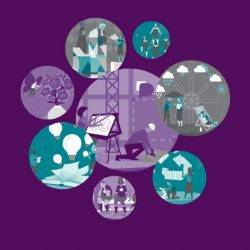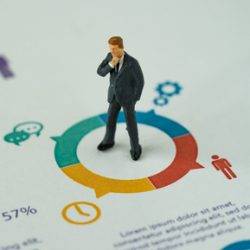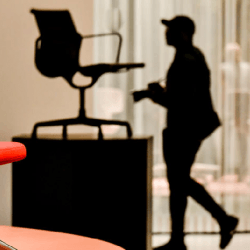November 13, 2018
Activity in leisure time does not compensate for sedentary workplace behaviour
 Employees are wrongly assuming that keeping active outside of the workplace and during leisure time will protect them from the danger of sitting for long periods when working in an office, a new study has found. The report defines an ‘active coach potato’ as a person who is physically active in their leisure time, but who also spends long periods of time sat down. Such sedentary behaviour increases the risk of chronic health issues such as diabetes, heart disease and strokes. The study is published in the scientific journal Occupational Medicine. The researchers asked 222 desk based workers and 121 managers to rate the healthiness of various combinations of sitting and physical activities during work and leisure time. They found that if a scenario included being physically active during leisure time, the employee didn’t appreciate the detrimental effect of workplace sitting alongside it.
Employees are wrongly assuming that keeping active outside of the workplace and during leisure time will protect them from the danger of sitting for long periods when working in an office, a new study has found. The report defines an ‘active coach potato’ as a person who is physically active in their leisure time, but who also spends long periods of time sat down. Such sedentary behaviour increases the risk of chronic health issues such as diabetes, heart disease and strokes. The study is published in the scientific journal Occupational Medicine. The researchers asked 222 desk based workers and 121 managers to rate the healthiness of various combinations of sitting and physical activities during work and leisure time. They found that if a scenario included being physically active during leisure time, the employee didn’t appreciate the detrimental effect of workplace sitting alongside it.







 A new survey of professional, mainly management-level women has revealed a lack of support for maternity returners by employers. According to the survey by working parents website
A new survey of professional, mainly management-level women has revealed a lack of support for maternity returners by employers. According to the survey by working parents website 








 The gig economy has helped lead to the doubling in size of the flexible office space sector since 2014 and it’s set to grow by up to 30 percent per year over the next five years claims new research published by JLL. Disruption or Distraction, a report delving into the growth of flexible office space across Europe explores the main drivers of the sector’s boom – including evolutionary changes in how, when and where people work, shifts in lifestyle, and rapid advancements in technology – and provides unique insights into the risks and rewards for both companies and real estate investors in Europe.
The gig economy has helped lead to the doubling in size of the flexible office space sector since 2014 and it’s set to grow by up to 30 percent per year over the next five years claims new research published by JLL. Disruption or Distraction, a report delving into the growth of flexible office space across Europe explores the main drivers of the sector’s boom – including evolutionary changes in how, when and where people work, shifts in lifestyle, and rapid advancements in technology – and provides unique insights into the risks and rewards for both companies and real estate investors in Europe. 


 A new report from the CIPD has found that most of those working in the HR and people management sector are confident exercising their judgement, with six in ten (64 percent) agreeing their job gives them the opportunity to fully express themselves as a professional. But more than just providing stimulating work, the people profession in 2018: UK and Ireland report shows the profession enables individuals to contribute to the ‘greater good’ and gives them a sense of purpose. People professionals also enjoy their job, with more than two-thirds of respondents saying their work makes them happy (70 percent) and energised (67 percent).
A new report from the CIPD has found that most of those working in the HR and people management sector are confident exercising their judgement, with six in ten (64 percent) agreeing their job gives them the opportunity to fully express themselves as a professional. But more than just providing stimulating work, the people profession in 2018: UK and Ireland report shows the profession enables individuals to contribute to the ‘greater good’ and gives them a sense of purpose. People professionals also enjoy their job, with more than two-thirds of respondents saying their work makes them happy (70 percent) and energised (67 percent).













November 8, 2018
Your relationship with your boss may be playing a role in your stress levels
by Martin Turner and Matthew Slater • Comment, Wellbeing
More →